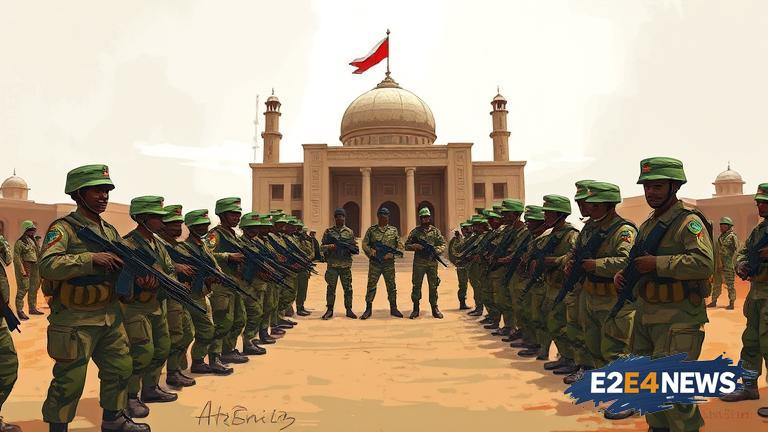The Sudanese coalition, led by the paramilitary Rapid Support Forces (RSF), has made a bold move by announcing the formation of a parallel government. This development has sent shockwaves throughout the country, with many fearing it could lead to further instability and conflict. The RSF, a powerful and well-armed group, has been a key player in Sudan’s politics for years. The announcement of a parallel government is seen as a challenge to the current transitional government, which has been in power since the ousting of former President Omar al-Bashir in 2019. The transitional government has been struggling to maintain control and stability in the country, and the formation of a parallel government could further erode its authority. The RSF has been accused of human rights abuses and has been involved in violent clashes with other armed groups in the country. The international community has expressed concern over the development, with many calling for calm and restraint. The United States, the European Union, and the African Union have all issued statements urging the parties involved to engage in dialogue and find a peaceful resolution. The situation in Sudan remains volatile, with many fearing that the formation of a parallel government could lead to a return to violence and instability. The country has been plagued by conflict and political instability for decades, and the current situation is a major setback to efforts to establish a stable and democratic government. The RSF’s decision to form a parallel government has been condemned by many, including the Sudanese Professionals Association, which has called for the group to be held accountable for its actions. The association has also called for the international community to take action to prevent further violence and instability. The situation in Sudan is complex, with many different armed groups and political factions vying for power. The formation of a parallel government is just the latest development in a long and bloody conflict. The country has been divided along ethnic and regional lines, with many different groups competing for control. The RSF’s decision to form a parallel government has been seen as a power grab, and many fear that it could lead to further violence and instability. The international community has a crucial role to play in resolving the crisis, and many are calling for increased diplomatic efforts to find a peaceful resolution. The situation in Sudan is a major concern for the region, and the formation of a parallel government has significant implications for regional stability. The African Union has called for an emergency meeting to discuss the situation, and the United Nations has issued a statement expressing concern over the development. The European Union has also issued a statement, calling for calm and restraint and urging the parties involved to engage in dialogue. The situation in Sudan is a major challenge to regional and international efforts to establish peace and stability in the country. The formation of a parallel government is a significant setback, and many fear that it could lead to a return to violence and instability. The international community must take action to prevent further violence and instability, and to support efforts to establish a stable and democratic government in Sudan. The country has a long and difficult road ahead, but with the support of the international community, it is possible to establish a peaceful and stable government. The RSF’s decision to form a parallel government is a major obstacle to this goal, but it is not insurmountable. With diplomacy, dialogue, and a commitment to peace and stability, it is possible to overcome this challenge and establish a government that represents the will of the Sudanese people.
